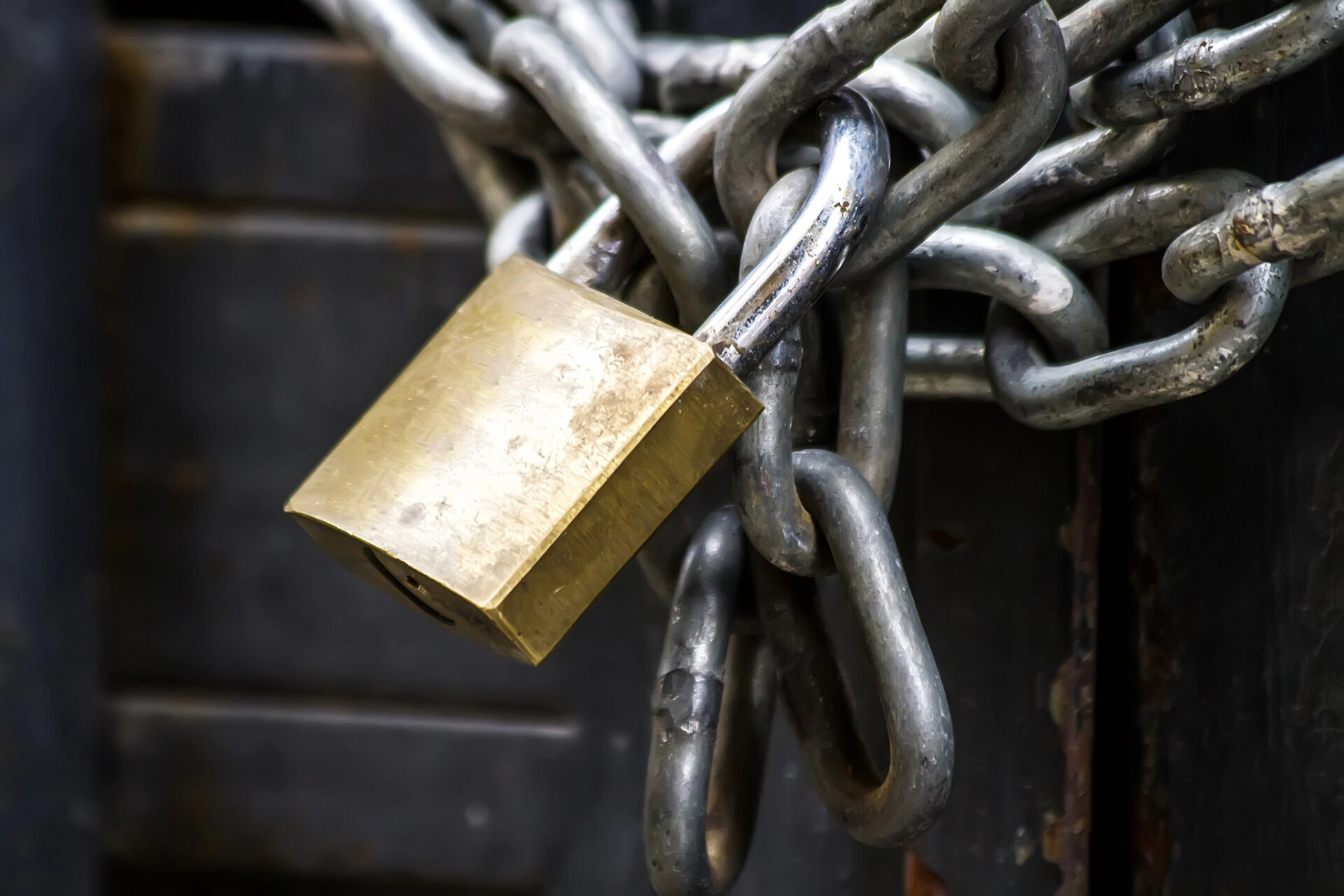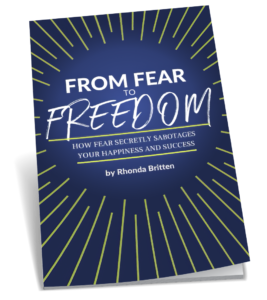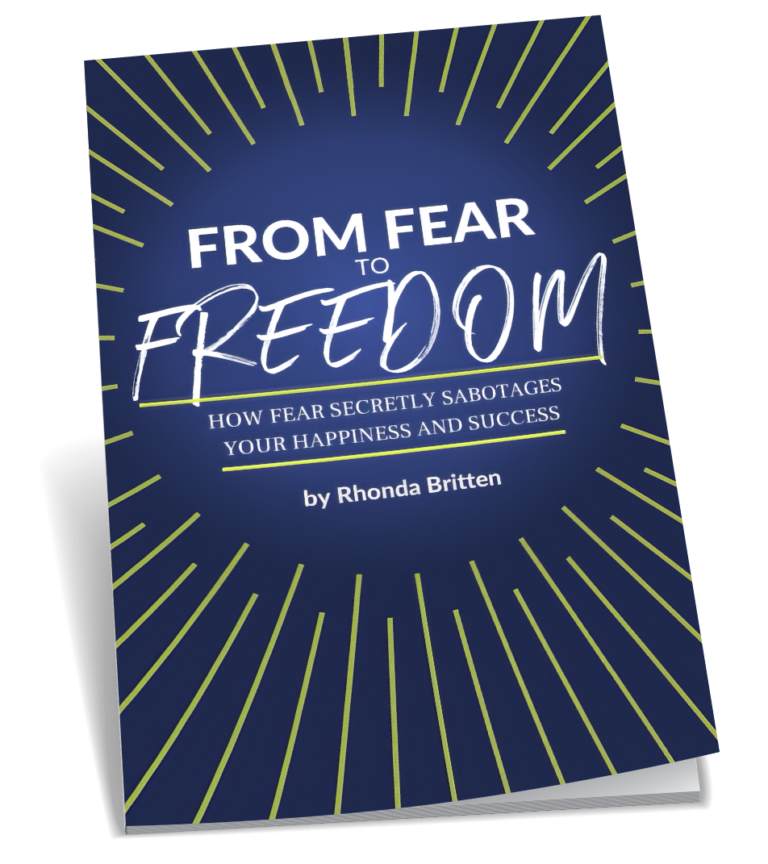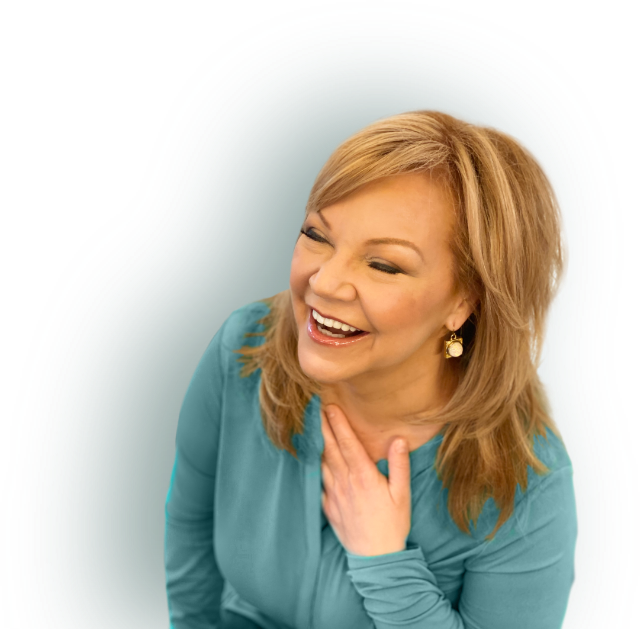Keeping secrets in a relationship erodes trust and can be incredibly damaging. Secrets lead to more secrets and more secrecy, and, in time, this can turn a healthy relationship into a toxic one.
But wait a minute. You’re probably thinking: “Hold on a second, Rhonda. Aren’t you always reminding me how important it is to have my own identity, boundaries, and needs in a relationship? Aren’t I allowed any privacy?”
Yes, yes, and YES! You’re absolutely right. Privacy is an essential part of any strong relationship, but it’s a very different thing. What most people don’t know is that there's a key difference between privacy vs. secrecy.
We often use “privacy” as an excuse for our own secrecy.

We say and believe we are private people when it’s actually fear that’s driving our secrecy. The privacy excuse is easy because it lets us off the hook for keeping unnecessary secrets, not opening up to people we care about, or lying. Because it’s such a familiar excuse, it’s often tough to distinguish the difference between secrecy and privacy.
In this article, we’ll focus on both. What is the difference between being private and secretive? Does the distinction really matter? How do you tell the difference, and how do you know if you are falling back on excuses? Friends, let’s dig in!
Privacy vs. Secrecy: What’s the Difference?
What Is Secrecy in a Relationship?
Secrecy is a toxic trait that leads to unhealthy relationships. We keep secrets because we are afraid of something. Secret keeping is bred out of fear, and it’s that fear that keeps us in a cycle of keeping secrets from the people we care about most.
So, why exactly are secrets harmful?
Secrets tend to build over time. If you tell a secret, you have to keep it going. Depending on the weight of the secret, you may need to keep lying over and over again to keep the secret from getting out. You might fear being discovered, which is a feeling that will only deepen as the relationship continues or grows more serious.
It's tough to keep secrets indefinitely, and over time, this lack of mutual understanding will weigh you down and begin to harm the relationship. More and more of your interactions will be rooted in fear instead of love. This hinders not only the strength of your relationship but also your own wellbeing because, as humans, we all crave close connections, belonging, and a tribe of our own.
I cover the damage secrets can cause in a relationship in a previous article: The Harm of Keeping Secrets in a Relationship. If you haven’t already, I encourage you to read that guide as well.
Secrets are manifested out of fear. And that is the key difference between secrecy and privacy. Secrecy can permanently damage a relationship, either slowly and over time with small secrets that build, or it may create huge cracks if you are keeping major secrets from your partner or another close loved one.
Let’s talk about some specific examples of secrecy:
- Not opening up or being vulnerable around your partner.
- Having sex or sharing emotional intimacy with other people without being honest with your partner about wanting an open relationship.
- Spending shared money without telling your partner.
- Pulling a spouse into debt without them knowing about it.
- Lying about current debts and obligations that could affect your partner if you are about to get married.
- Lying to someone you are intimate with about whether or not you are vaccinated.
- Continuing to smoke, drink, take drugs, eat unhealthy food, gamble, watch pornography, and so on after promising your partner that you would stop.
- Pretending to work a high-paying job when you earn minimum wage or are unemployed.
- Lying to a partner or potential partner about whether or not you have children.
Let’s break a couple of these down further.
If you begin dating someone and tell them you have a different, higher-status job than you actually do, this is secrecy, not privacy. You may choose not to talk about your job or career path yet, but be open about that choice, and don’t make up a lie instead. Beginning a relationship on a foundation of lies is dooming it to fail, even if saying you’re a doctor or lawyer sounds better initially.
Addictions lead to secrecy. We often know we shouldn’t be doing what we’re doing, and that shame and guilt leads us to lie about it. If you are keeping harmful addictions, such as alcoholism, substance abuse, smoking, or gambling, from your spouse or close family members or friends, this is a form of secrecy. Lying about it and saying you’ve quit when you haven’t furthers the secrecy and erodes trust.
Lying about how you are spending money in a shared account is a form of secrecy. It’s perfectly okay and healthy for you to have your own money in a relationship, but this has limits. If you continually lie about where joint money is going, this is secrecy, not privacy. If you pull your partner into debt without them knowing what’s going on or where you are spending the money, this is, once again, secrecy, not privacy.
What Is Privacy in a Relationship?
Is it OK to have privacy in a relationship?
ABSOLUTELY! Yes, Yes, YES. Privacy and secrecy are very different things. Privacy is natural, honest, and it might be one of your core boundaries.
Being in a relationship does not mean you relinquish your identity, your own thoughts, time alone, or personal privacy. As much as it may be nice or romantic to think of sayings like, “We are one” or “When two become one,” that’s not what happens in a relationship. You are still your own person! You are you, and when you agree to spend a lot of time with another autonomous individual and pool your resources, this makes a relationship.
Privacy is part of having boundaries. You may not like the sound of boundaries, but we all need them for our own physical and mental health. Do you know what your personal boundaries are? So many of us never take the time to understand our own boundaries. And if you don’t understand your own boundaries, how do you expect the people around you to know what they are?
You might be a very private person, and that’s okay. But you must be honest with your partner and loved ones about your boundaries and needs.
Learn more: Why Personal Boundaries Are Important and How to Develop Them.
That was me for such a long time. Yep. Guilty! 🙋♀️
I didn’t know what my boundaries were, yet I got upset/hurt/angry when people crossed them. I thought the people who loved me—my closest friends and family and romantic partners—should know not to cross my boundaries. And at other times in my life, I didn’t believe in boundaries at all.
Boy, was I wrong! Boundaries are essential to any healthy relationship!
What about the other person’s needs and boundaries? Secrecy is often something that goes against your own boundaries or the other person’s. Are you breaking one of their boundaries through secrecy? If you're lying to your partner, it’s likely you’re crossing one of their major boundaries.
What are some examples of PRIVACY in a relationship?
Wanting to take time alone every now and again is privacy. It’s not secrecy to want or need time alone—in fact, it’s healthy! Spending time with yourself is a powerful meditative process that, ideally, everyone makes time for. Whether you enjoy spending time with yourself or not, it’s a practice of self-love that will help you better understand yourself, determine your own needs, work through strong emotions, and manage fear.
Seeing friends or family members outside of a romantic relationship is another example of privacy. It’s okay to have a private life beyond your partner. Be open and honest about who you are seeing, but don’t be afraid of taking this time for yourself and the other important people in your life. Your romantic relationship is certainly an important relationship in your life, but it’s not the only one!
Having your own bank account is a form of privacy in a relationship. What’s crucial is not being secretive about it or using it in a harmful way. Buying cigarettes with your private bank account while lying to your partner about quitting smoking is a form of secrecy. Using your private bank account to make your own purchases or to buy gifts you don’t want other people to find out about (yet 😉) is healthy privacy.
Secrecy and privacy become more difficult to differentiate when we use privacy as an excuse or shield for our secrecy and deeper fears.
Like in the example above, you may tell yourself your private bank account is a form of healthy privacy, but it becomes a form of secrecy if you abuse this privacy. Getting you and your partner into severe debt, funding an addiction, or continually lying about having the account rolls it back to a form of secrecy.
Differentiating Between Secrecy and Privacy

Healthy relationships require you to understand your own needs and boundaries. Privacy maintains these. Having your own privacy is a basic human need. Secrecy occurs because of fear. What’s triggering your need to keep secrets or to lie? What are the underlying emotions driving your secrecy?
It’s a behavior focused on a deeper fear of rejection, fear of not being good enough, fear of being judged, or fear of loss.
We withhold because we’re afraid of what others might think of us.
We don’t open up because we are afraid of being vulnerable or being rejected.
We lie because we’re afraid of the truth or what someone else might think of the truth.
Secrecy occurs because we are afraid—whether we realize it or not. It could be that someone hurt you in the past, or you may have such a strong fear of not being good enough that you worry no one will love you as you are. You might make up stories to make yourself look better or never fully share who you are so that you won’t get hurt if someone you love leaves you.
Privacy, on the other hand, is essential to ensuring your needs are met.
How much privacy you need and what type of privacy depends on your own personal needs as well as your boundaries.
Be careful not to fall into the trap of using privacy as an excuse. You might say or even believe that lying to your partner, omitting key information, misleading people you care about, or not opening up to anyone is being “private.” In reality, it’s just what you want to believe, and it’s what fear wants you to believe, too.
When differentiating between privacy and secrecy in your own life, ask yourself a few questions:
- Could your words or actions lead to future negative consequences?
- Could your words or actions hurt someone you care about?
- If the situation were reversed, would you feel hurt knowing your partner was doing the same thing?
- Are you making your decision based on a past trauma or ingrained fear?
- Is there something triggering your response to lie or withhold information?
- Are you being open and honest about your boundaries and the type of privacy you need?
The more deeply-rooted your emotional fears are, the more difficult it will be to differentiate between secrecy and privacy, and the more difficult it will be to spot your own excuses.
But don’t worry—YOU ARE NOT ALONE!
Fear Is Holding You Back
Fear is holding you back in more ways than you can imagine. And it’s not just you. The average person is crippled by fear. It keeps them from pursuing their dreams, having strong relationships, being happy, and living the life their soul intended.™
If you’re ready to make real progress—and I mean real progress and giant leaps forward in your own personal growth—I invite you to join the community at Fearless Living. I’ve spent decades cracking the secret code to fear, and I can help you do the same. It’s time to live Fearlessly.
Keeping secrets in a relationship erodes trust and can be incredibly damaging. Secrets lead to more secrets and more secrecy, and, in time, this can turn a healthy relationship into a toxic one.
But wait a minute. You’re probably thinking: “Hold on a second, Rhonda. Aren’t you always reminding me how important it is to have my own identity, boundaries, and needs in a relationship? Aren’t I allowed any privacy?”
Yes, yes, and YES! You’re absolutely right. Privacy is an essential part of any strong relationship, but it’s a very different thing. What most people don’t know is that there's a key difference between privacy vs. secrecy.
We often use “privacy” as an excuse for our own secrecy.

We say and believe we are private people when it’s actually fear that’s driving our secrecy. The privacy excuse is easy because it lets us off the hook for keeping unnecessary secrets, not opening up to people we care about, or lying. Because it’s such a familiar excuse, it’s often tough to distinguish the difference between secrecy and privacy.
In this article, we’ll focus on both. What is the difference between being private and secretive? Does the distinction really matter? How do you tell the difference, and how do you know if you are falling back on excuses? Friends, let’s dig in!
Privacy vs. Secrecy: What’s the Difference?
What Is Secrecy in a Relationship?
Secrecy is a toxic trait that leads to unhealthy relationships. We keep secrets because we are afraid of something. Secret keeping is bred out of fear, and it’s that fear that keeps us in a cycle of keeping secrets from the people we care about most.
So, why exactly are secrets harmful?
Secrets tend to build over time. If you tell a secret, you have to keep it going. Depending on the weight of the secret, you may need to keep lying over and over again to keep the secret from getting out. You might fear being discovered, which is a feeling that will only deepen as the relationship continues or grows more serious.
It's tough to keep secrets indefinitely, and over time, this lack of mutual understanding will weigh you down and begin to harm the relationship. More and more of your interactions will be rooted in fear instead of love. This hinders not only the strength of your relationship but also your own wellbeing because, as humans, we all crave close connections, belonging, and a tribe of our own.
I cover the damage secrets can cause in a relationship in a previous article: The Harm of Keeping Secrets in a Relationship. If you haven’t already, I encourage you to read that guide as well.
Secrets are manifested out of fear. And that is the key difference between secrecy and privacy. Secrecy can permanently damage a relationship, either slowly and over time with small secrets that build, or it may create huge cracks if you are keeping major secrets from your partner or another close loved one.
Let’s talk about some specific examples of secrecy:
- Not opening up or being vulnerable around your partner.
- Having sex or sharing emotional intimacy with other people without being honest with your partner about wanting an open relationship.
- Spending shared money without telling your partner.
- Pulling a spouse into debt without them knowing about it.
- Lying about current debts and obligations that could affect your partner if you are about to get married.
- Lying to someone you are intimate with about whether or not you are vaccinated.
- Continuing to smoke, drink, take drugs, eat unhealthy food, gamble, watch pornography, and so on after promising your partner that you would stop.
- Pretending to work a high-paying job when you earn minimum wage or are unemployed.
- Lying to a partner or potential partner about whether or not you have children.
Let’s break a couple of these down further.
If you begin dating someone and tell them you have a different, higher-status job than you actually do, this is secrecy, not privacy. You may choose not to talk about your job or career path yet, but be open about that choice, and don’t make up a lie instead. Beginning a relationship on a foundation of lies is dooming it to fail, even if saying you’re a doctor or lawyer sounds better initially.
Addictions lead to secrecy. We often know we shouldn’t be doing what we’re doing, and that shame and guilt leads us to lie about it. If you are keeping harmful addictions, such as alcoholism, substance abuse, smoking, or gambling, from your spouse or close family members or friends, this is a form of secrecy. Lying about it and saying you’ve quit when you haven’t furthers the secrecy and erodes trust.
Lying about how you are spending money in a shared account is a form of secrecy. It’s perfectly okay and healthy for you to have your own money in a relationship, but this has limits. If you continually lie about where joint money is going, this is secrecy, not privacy. If you pull your partner into debt without them knowing what’s going on or where you are spending the money, this is, once again, secrecy, not privacy.
What Is Privacy in a Relationship?
Is it OK to have privacy in a relationship?
ABSOLUTELY! Yes, Yes, YES. Privacy and secrecy are very different things. Privacy is natural, honest, and it might be one of your core boundaries.
Being in a relationship does not mean you relinquish your identity, your own thoughts, time alone, or personal privacy. As much as it may be nice or romantic to think of sayings like, “We are one” or “When two become one,” that’s not what happens in a relationship. You are still your own person! You are you, and when you agree to spend a lot of time with another autonomous individual and pool your resources, this makes a relationship.
Privacy is part of having boundaries. You may not like the sound of boundaries, but we all need them for our own physical and mental health. Do you know what your personal boundaries are? So many of us never take the time to understand our own boundaries. And if you don’t understand your own boundaries, how do you expect the people around you to know what they are?
You might be a very private person, and that’s okay. But you must be honest with your partner and loved ones about your boundaries and needs.
Learn more: Why Personal Boundaries Are Important and How to Develop Them.
That was me for such a long time. Yep. Guilty! 🙋♀️
I didn’t know what my boundaries were, yet I got upset/hurt/angry when people crossed them. I thought the people who loved me—my closest friends and family and romantic partners—should know not to cross my boundaries. And at other times in my life, I didn’t believe in boundaries at all.
Boy, was I wrong! Boundaries are essential to any healthy relationship!
What about the other person’s needs and boundaries? Secrecy is often something that goes against your own boundaries or the other person’s. Are you breaking one of their boundaries through secrecy? If you're lying to your partner, it’s likely you’re crossing one of their major boundaries.
What are some examples of PRIVACY in a relationship?
Wanting to take time alone every now and again is privacy. It’s not secrecy to want or need time alone—in fact, it’s healthy! Spending time with yourself is a powerful meditative process that, ideally, everyone makes time for. Whether you enjoy spending time with yourself or not, it’s a practice of self-love that will help you better understand yourself, determine your own needs, work through strong emotions, and manage fear.
Seeing friends or family members outside of a romantic relationship is another example of privacy. It’s okay to have a private life beyond your partner. Be open and honest about who you are seeing, but don’t be afraid of taking this time for yourself and the other important people in your life. Your romantic relationship is certainly an important relationship in your life, but it’s not the only one!
Having your own bank account is a form of privacy in a relationship. What’s crucial is not being secretive about it or using it in a harmful way. Buying cigarettes with your private bank account while lying to your partner about quitting smoking is a form of secrecy. Using your private bank account to make your own purchases or to buy gifts you don’t want other people to find out about (yet 😉) is healthy privacy.
Secrecy and privacy become more difficult to differentiate when we use privacy as an excuse or shield for our secrecy and deeper fears.
Like in the example above, you may tell yourself your private bank account is a form of healthy privacy, but it becomes a form of secrecy if you abuse this privacy. Getting you and your partner into severe debt, funding an addiction, or continually lying about having the account rolls it back to a form of secrecy.
Differentiating Between Secrecy and Privacy

Healthy relationships require you to understand your own needs and boundaries. Privacy maintains these. Having your own privacy is a basic human need. Secrecy occurs because of fear. What’s triggering your need to keep secrets or to lie? What are the underlying emotions driving your secrecy?
It’s a behavior focused on a deeper fear of rejection, fear of not being good enough, fear of being judged, or fear of loss.
We withhold because we’re afraid of what others might think of us.
We don’t open up because we are afraid of being vulnerable or being rejected.
We lie because we’re afraid of the truth or what someone else might think of the truth.
Secrecy occurs because we are afraid—whether we realize it or not. It could be that someone hurt you in the past, or you may have such a strong fear of not being good enough that you worry no one will love you as you are. You might make up stories to make yourself look better or never fully share who you are so that you won’t get hurt if someone you love leaves you.
Privacy, on the other hand, is essential to ensuring your needs are met.
How much privacy you need and what type of privacy depends on your own personal needs as well as your boundaries.
Be careful not to fall into the trap of using privacy as an excuse. You might say or even believe that lying to your partner, omitting key information, misleading people you care about, or not opening up to anyone is being “private.” In reality, it’s just what you want to believe, and it’s what fear wants you to believe, too.
When differentiating between privacy and secrecy in your own life, ask yourself a few questions:
- Could your words or actions lead to future negative consequences?
- Could your words or actions hurt someone you care about?
- If the situation were reversed, would you feel hurt knowing your partner was doing the same thing?
- Are you making your decision based on a past trauma or ingrained fear?
- Is there something triggering your response to lie or withhold information?
- Are you being open and honest about your boundaries and the type of privacy you need?
The more deeply-rooted your emotional fears are, the more difficult it will be to differentiate between secrecy and privacy, and the more difficult it will be to spot your own excuses.
But don’t worry—YOU ARE NOT ALONE!
Fear Is Holding You Back
Fear is holding you back in more ways than you can imagine. And it’s not just you. The average person is crippled by fear. It keeps them from pursuing their dreams, having strong relationships, being happy, and living the life their soul intended.™
If you’re ready to make real progress—and I mean real progress and giant leaps forward in your own personal growth—I invite you to join the community at Fearless Living. I’ve spent decades cracking the secret code to fear, and I can help you do the same. It’s time to live Fearlessly.







